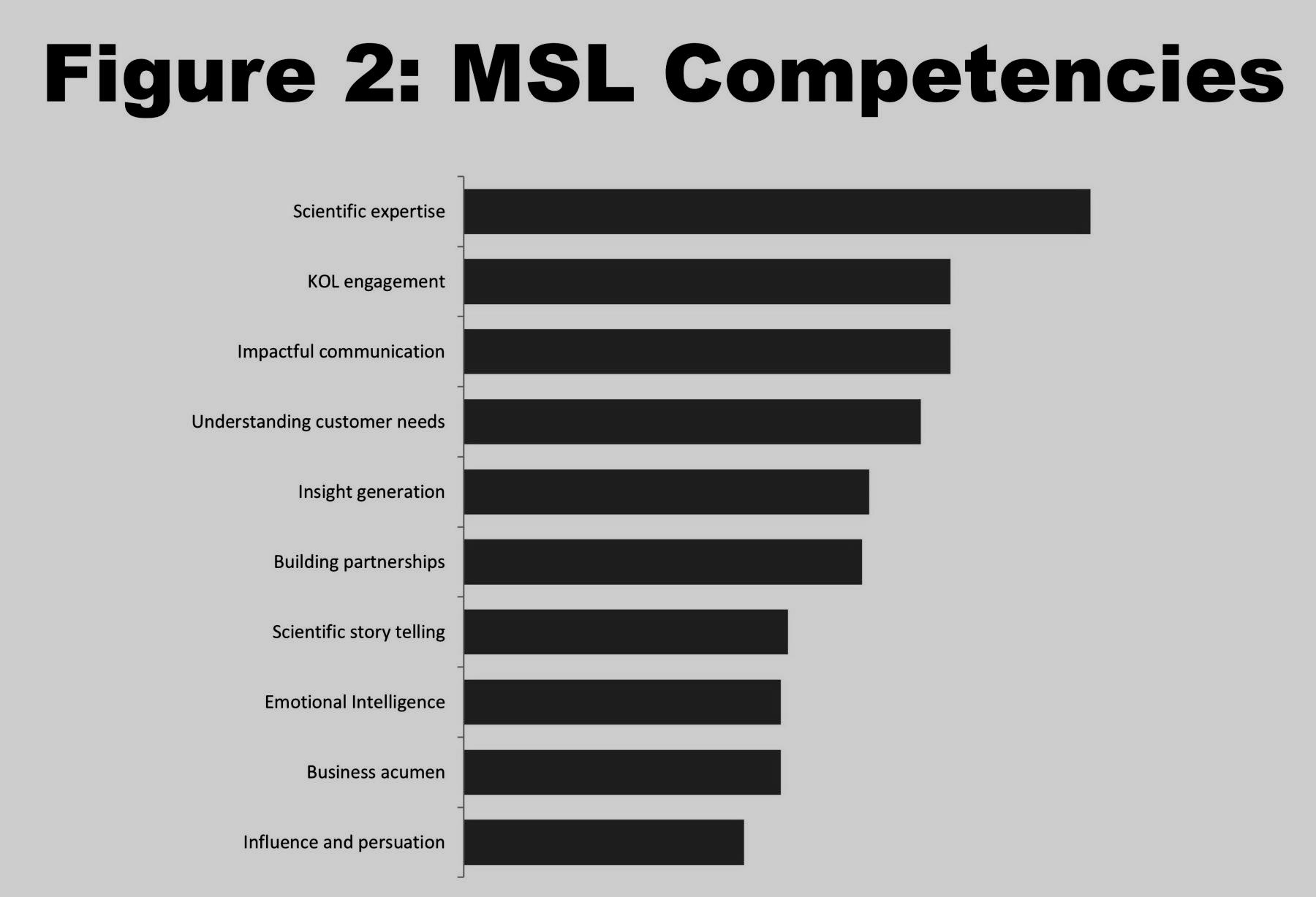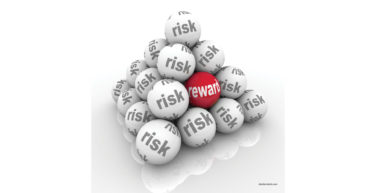The role of the Medical Science Liaison (MSL) is indispensable within the healthcare industry. This is primarily due to the fact that proactive Medical Affairs organizations have a better understanding of the variety of stakeholders and their needs—not to mention that MSLs aim to engage on meaningful scientific interactions. Across the industry, MSLs are expected to spend between 70% and 80% of their working time in customer-facing activities. Although the role has been in the industry since the late 1960s, the true large-scale expansion and recognition of the role only started to happen since the start of the new millennium. The last decade in particular has seen exponential growth in the number of MSLs being deployed by the pharmaceutical/healthcare industry.
Key Drivers
Some of the key drivers of this shift are: Growth in the number of sophisticated interventions being launched resulting in a demand for a truly credible, unbiased, and non-promotional scientific exchange of complex clinical data with healthcare professionals (HCPs); ability to engage with HCPs pre- and post-license in a compliant manner, combined with the increasing number of HCPs preferring to engage with a member of medical team rather than a sales representative; involvement in evidence generation; and, most important, the valuable insights that MSLs bring back to their organizations through their interactions with HCPs.
Both the industry and HCPs perceive MSLs to be a valuable resource to them. And, just like with any other customer-facing role, creating a positive customer experience is vital to successful long-term relationship building. It also worth noting before diving into our research that even though MSLs are highly valued, there is always a need to secure a clear line of compliance that warrants genuine scientific engagement addressing customers’ needs for the ultimate center of gravity—the patient.
In order to excel in their role and create a positive customer experience, especially around HCP engagement, MSLs too require certain competencies. Competency is the ability to do something successfully and efficient.1 Various academic scholars2,3 have outlined the importance of competencies in the evolution of corporate culture and enhancing performance and productivity. There have been studies4 conducted in the past to ascertain the right competencies for the MSL role.
This study aims to identify the top 10 competencies that are fit for both MSLs and MSL managers. On top of the competencies, this study also aims to identify the training program that needs to be in place to develop the identified competencies.
Methodology
The study questionnaire was designed by the authors and Survey Monkey software was used to collect responses. Respondents were invited to participate in the survey through direct contacts from the authors’ LinkedIn network. Duplicate survey responses from a single IP address were not accepted. There were 211 responses in total from 35 countries across the world. As this is not a probability-based sample, calculating the theoretical margin of sampling error is not applicable. Many types of survey errors can limit the ability to generalize to a population. The authors are confident that the information gathered from this survey can be used to make important business decisions related to this particular topic.
Survey Results
The highest responses were received from Europe (44%) followed by North America (33%), Asia (7%), Rest of the world (6%), JAPAC (4%), South America (3%), and the Middle East (3%).
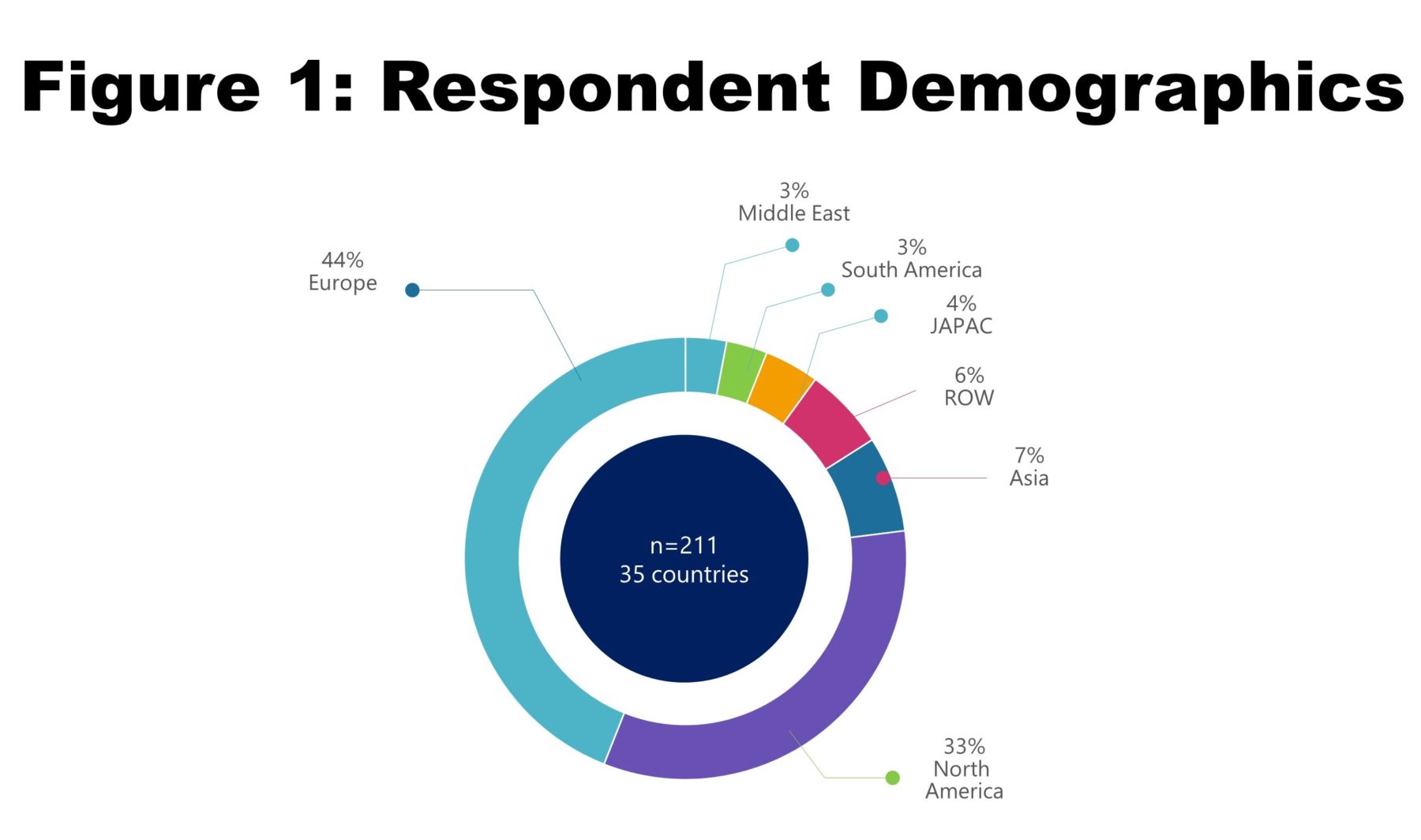 The majority of the respondents (88%) worked for pharmaceutical companies followed by biotechnology (8%), and medical device (3%). Fifty-five percent worked for companies ranked among the top 20 (revenue over USD 10 billion), 24% from companies with a revenue of less than USD 2 billion, and 21% are from the top 50 (revenue between USD 2 and 10 billion).
The majority of the respondents (88%) worked for pharmaceutical companies followed by biotechnology (8%), and medical device (3%). Fifty-five percent worked for companies ranked among the top 20 (revenue over USD 10 billion), 24% from companies with a revenue of less than USD 2 billion, and 21% are from the top 50 (revenue between USD 2 and 10 billion).
Forty-nine percent (n=104) of the respondents were either MSL excellence director or manager with global, regional, or country level responsibilities; 39% (n=82) were MSL; and 12% (n=25) were either country, regional, or global medical affairs directors or vice presidents directly involved in MSL strategies.
MSL Competencies
The respondents were asked to rank in the order of importance the top seven competencies (among a list of 15 competencies) that are required for MSLs to excel in their role. Although the study set out to identify the top seven, the data presented below outlines the 10 most important competencies as most organizations have between 10 and 12 of these competencies and among them will be 6 or 7 core competencies. The respondents identified scientific expertise, Key Opinion Leader (KOL) engagement, impactful communications, understanding customer needs, insight generation, building partnerships, and scientific storytelling as the top seven MSL competencies. Emotional intelligence, business acumen, and influence and persuasion made it to the top 10 list.
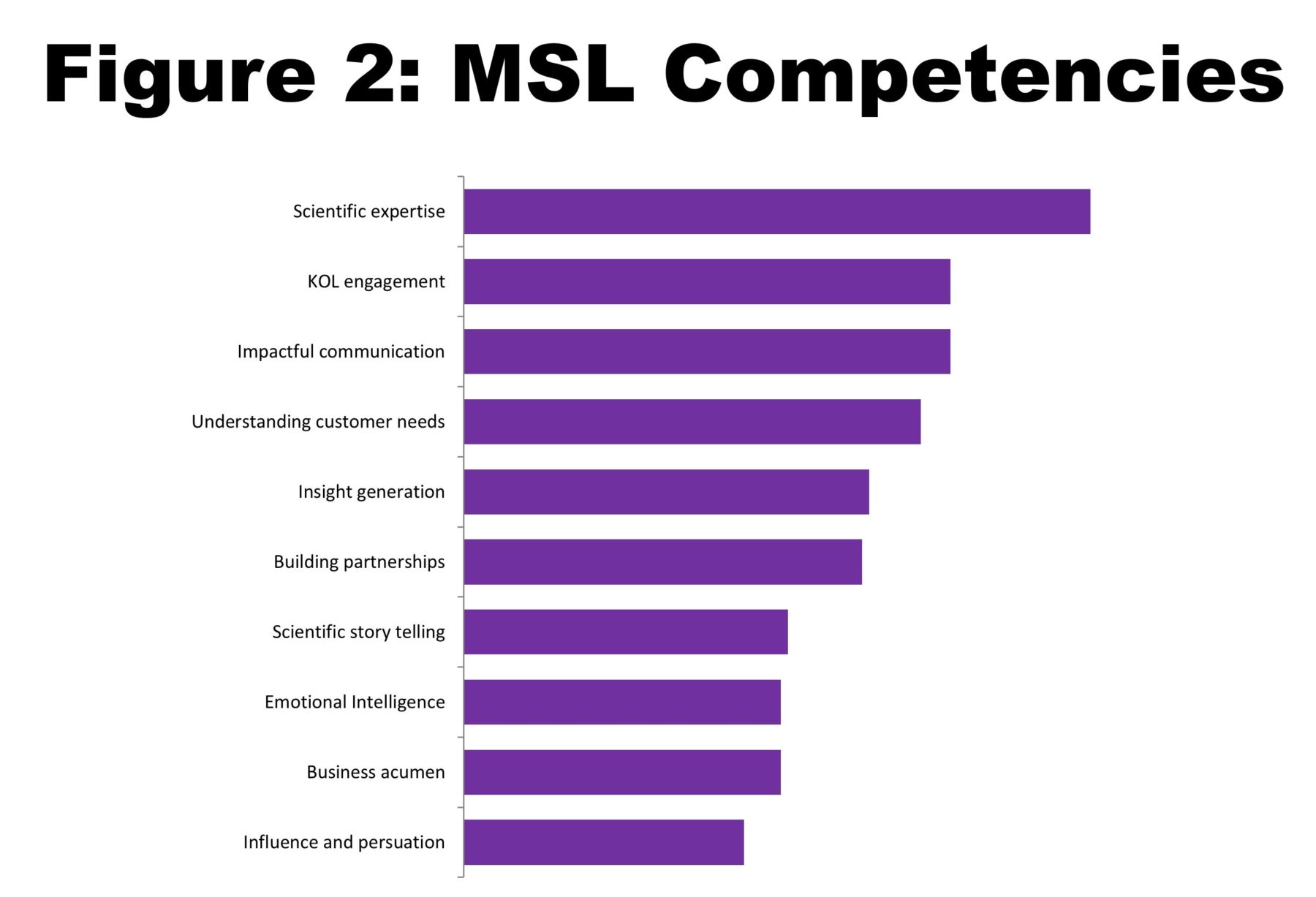 Training Programs for MSLs
Training Programs for MSLs
The respondents were asked to list or recommend (in an open text comment box) suitable training programs that would develop the MSLs into skillful and competent contributors. The question asked them to list the current programs that are in place in their organizations. The following were listed as core MSL training programs that are currently in place in the respondents’ organizations: emotional intelligence, presentation, communication and negotiation skills, scientific storytelling, how to read a clinical paper, running advisory boards, gathering insights business acumen, project management, and, most interestingly, harnessing the power of stress.
MSL Manager Competencies
For the MSL manager competencies, the top seven identified by the respondents were: coaching and mentoring, leadership, people management, cross functional collaboration, strategic thinking, emotional intelligence, and business acumen. Decision making, delegation, and compliance and regulatory expertise made it to the top 10 list. The top three competencies identified by the respondents were directly related to leading teams or enhancing the coaching skills to maximize output from the employees.
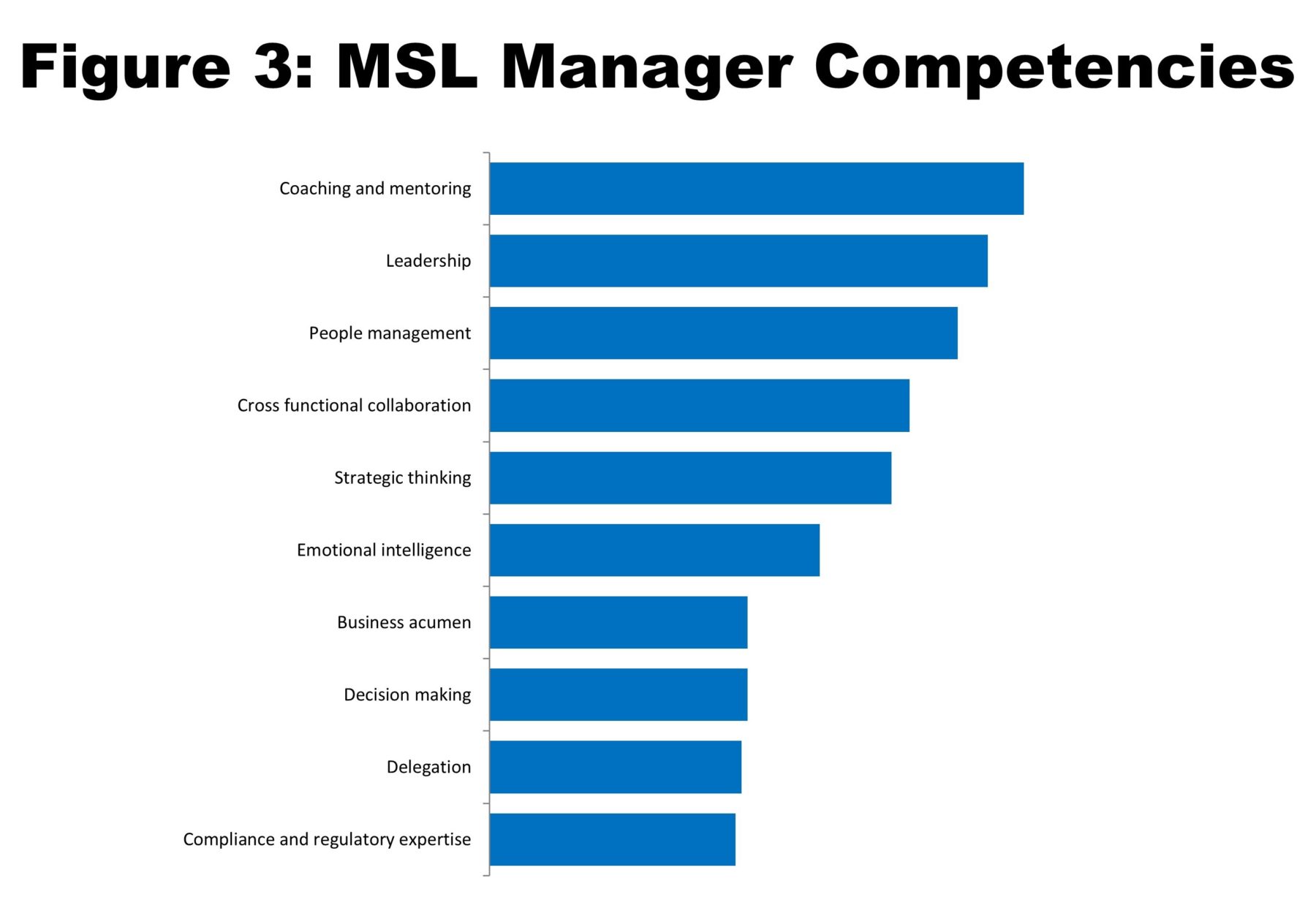 For MSL managers, the respondents identified adaptive leadership, budgeting, business acumen, change management, goal/expectation setting, situational leadership, non-authoritative influence, and working across boundaries as some of the key leadership training.
For MSL managers, the respondents identified adaptive leadership, budgeting, business acumen, change management, goal/expectation setting, situational leadership, non-authoritative influence, and working across boundaries as some of the key leadership training.
Conclusions and Recommendation for Future Research
Undoubtedly, competencies are extremely important to execute deliverables successfully and efficiently. For a significantly customer-facing role such as the MSL, it is even more important to have a competency-based approach to both enhancing and assessing performance. This study identified both the MSL and MSL manager capabilities along with some training programs currently offered by organizations to support and develop MSL and MSL manager skills and abilities to perform their duties efficiently and successfully.
Future research in this area should be designed in such a way that they are statistically powered to look into regional differences in competencies and training of MSLs and MSL managers. Also, it would be interesting to find out the differences in competencies according to level of seniority in the role, such as the difference between MSL versus senior MSL and MSL manager versus senior MSL managers.
Our final point relates to the practicalities of developing competencies, at this point we will only mention that capabilities are not developed overnight, it is a process but each organization must assess the priorities and flow of events in order to secure success and sustainable development of the individual. A following article warrants addressing these and other topics.
The authors can be contacted directly for any suggestions or contributions to ideas for future research.
References:
1. The Oxford English Dictionary
2. T.J. Peters, R.H. Waterman. In Search of Excellence. Harper and Row, New York (1982).
3. G. Hofstede. Cultures and Organizations. McGraw-Hill, London (1991).
4. S. Dyer. “The Medical Science Liaison Competencies That Contribute Most to Success” (2015).

